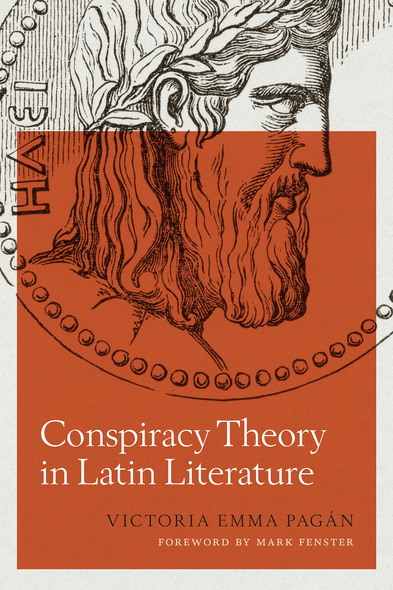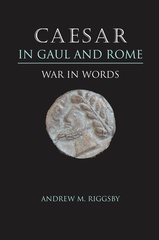Conspiracy Theory in Latin Literature
Conspiracy theory as a theoretical framework has emerged only in the last twenty years; commentators are finding it a productive way to explain the actions and thoughts of individuals and societies. In this compelling exploration of Latin literature, Pagán uses conspiracy theory to illuminate the ways that elite Romans invoked conspiracy as they navigated the hierarchies, divisions, and inequalities in their society. By seeming to uncover conspiracy everywhere, Romans could find the need to crush slave revolts, punish rivals with death or exile, dismiss women, denigrate foreigners, or view their emperors with deep suspicion. Expanding on her earlier Conspiracy Narratives in Roman History, Pagán here interprets the works of poets, satirists, historians, and orators—Juvenal, Tacitus, Suetonius, Terence, and Cicero, among others—to reveal how each writer gave voice to fictional or real actors who were engaged in intrigue and motivated by a calculating worldview.
Delving into multiple genres, Pagán offers a powerful critique of how conspiracy and conspiracy theory can take hold and thrive when rumor, fear, and secrecy become routine methods of interpreting (and often distorting) past and current events. In Roman society, where knowledge about others was often lacking and stereotypes dominated, conspiracy theory explained how the world worked. The persistence of conspiracy theory, from antiquity to the present day, attests to its potency as a mechanism for confronting the frailties of the human condition.
Pagan has interesting things to say about these authors and about conspiracies and the Romans’ use of (mis)informed conjecture…those interested in politics in the Roman world will welcome the book. Summing Up: Recommended. Upper-division undergraduates through faculty.
The book is a literary and analytical tour de force that displays expertise in rhetoric, comedy, history, and biography. Pagán illuminates the central role conspiracy theory played in Roman discourses of political and social hierarchies and moral values. Her insightful observations are as useful to the understanding of Roman culture as to modern conspiracy theories.
Victoria Emma Pagán is Professor of Classics at the University of Florida. Her previous books are A Sallust Reader, Rome and the Literature of Gardens, and Conspiracy Narratives in Roman History. She also edited the Companion to Tacitus.
- Foreword by Mark Fenster
- Acknowledgments
- Introduction: From Conspiracy to Conspiracy Theory
- Chapter 1: Conspiracy Theory in Action
- Chapter 2: Juvenal and Blame
- Chapter 3: Tacitus and Punishment
- Chapter 4: Suetonius and Suspicion
- Epilogue: The Golden Age of Conspiracy Theory
- Abbreviations
- Notes
- Bibliography
- General Index
- Index Locorum









